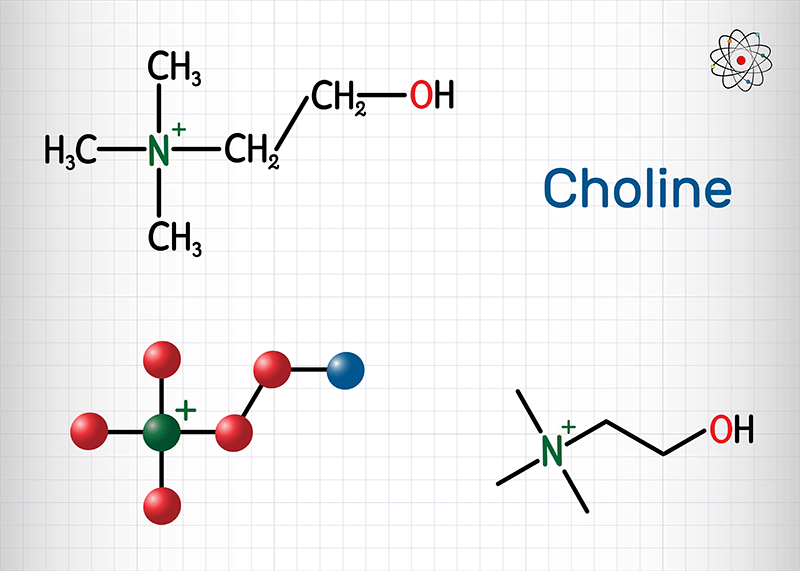- +033 2572 7171
- info@dhanvantary.com

4.5 Rating | 4500 Review

4.5 Rating | 4500 Review
Choline is classified as a macronutrient that is crucial for the proper development of the brain, the maintenance of healthy liver functions, the functioning of nerves, a balanced metabolism, and the effective movement of muscles. It is found in the form of phosphatidylcholine, a compound that contributes to the formation of structural components of fats, making it present in a variety of fat-containing foods.

Choline is integral to numerous physiological processes that occur daily within the body. Additionally, it plays a significant role in methylation processes, which are essential for nerve signaling, DNA synthesis, and detoxification.
Choline facilitates the absorption of fats necessary for the creation of cell membranes and structures. It is also involved in the synthesis of DNA and supports methyl group processes that are vital for genetic material formation.
Choline is essential for brain growth and development, enhancing the structural integrity and signaling capabilities of nerves.
Choline aids in the transport of fats from liver cells throughout the body, helping to prevent fat accumulation in the liver.
It is critical for protecting against dementia, memory loss, and cognitive decline, while also promoting brain elasticity.
Choline assists in the conversion of homocysteine, which helps prevent excessive fat accumulation in the body, thereby reducing the risk of heart attacks and strokes.
Choline contributes to improved stamina and helps maintain optimal energy levels within the body.
Individuals experiencing choline deficiency face an increased risk of developing fatty liver disease (FLD), a reversible condition characterized by the accumulation of triglyceride fats within liver cells.
A reduced level of choline is linked to cognitive decline, Alzheimer’s disease, and memory impairment.
Excessive intake of choline can result in symptoms such as profuse sweating, elevated body temperature, and increased salivation. Additionally, individuals may experience nausea, gastrointestinal discomfort, diarrhea, and a decrease in appetite as a result of high choline consumption.
